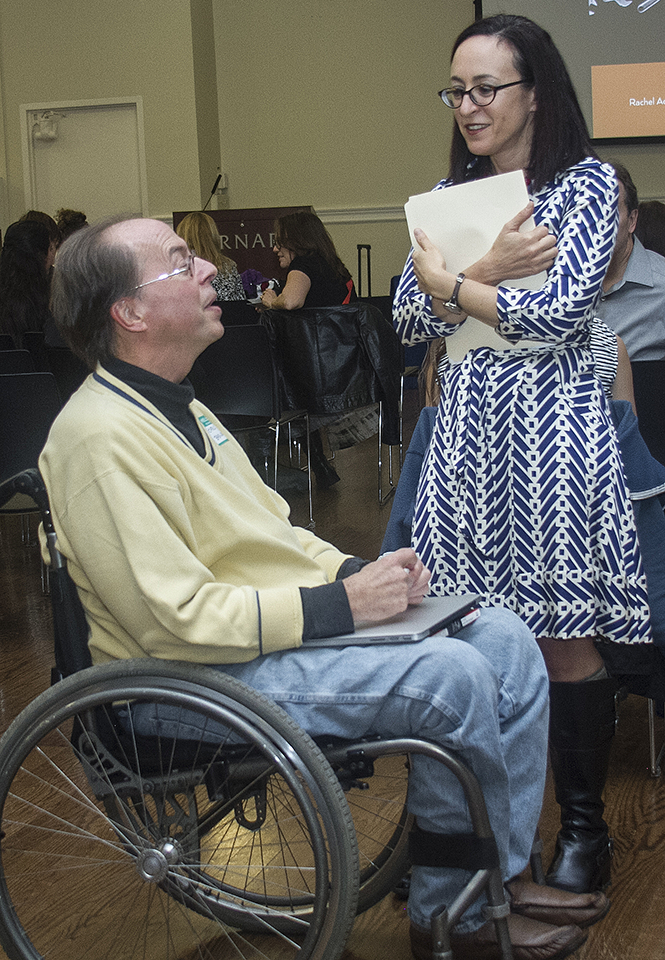Keywords for Disability Studies Symposium Explores Key Questions for the Future
Disability scholars, artists, activists, and students gathered at the Keywords/Key Questions for Disability Studies Symposium this October to discuss the future of disability studies.
2015 has been a landmark year for disability studies and activism both at Columbia and throughout the United States, as the U.S.’s foundational disability rights legislation, the Americans with Disabilities Act (ADA), turned 25 this July. The anniversary of the ADA, whose legacy is still the subject of much critical debate, coincided with the release of this summer’s Keywords for Disability Studies (NYU Press, 2015), a field-defining collection of essays co-edited by CSSD director Rachel Adams, along with Benjamin Reiss (Emory University) and David Serlin (University of California, San Diego). The fall semester also marked the launch of Columbia’s new University Seminar on Disability, Culture, and Society, following the conclusion of CSSD’s Future of Disability Studies Working Group last spring.
In celebration of these new beginnings and opportunities for reflection, disability scholars, artists, activists, and students gathered at the Keywords/Key Questions for Disability Studies Symposium this October to discuss the next chapter of disability studies. Photos from that meeting are available here.
The two-day symposium began with an artists’ panel on the evening of October 1, where artists Riva Lehrer, Park McArthur, and Sunaura Taylor discussed the key concepts that have informed their artistic practices as people with disabilities. The presentations and Q&A session covered a range of issues including inaccessibility in the art world, representations of people with disabilities in visual art, and the discursive divides between disability scholarship and activism.

